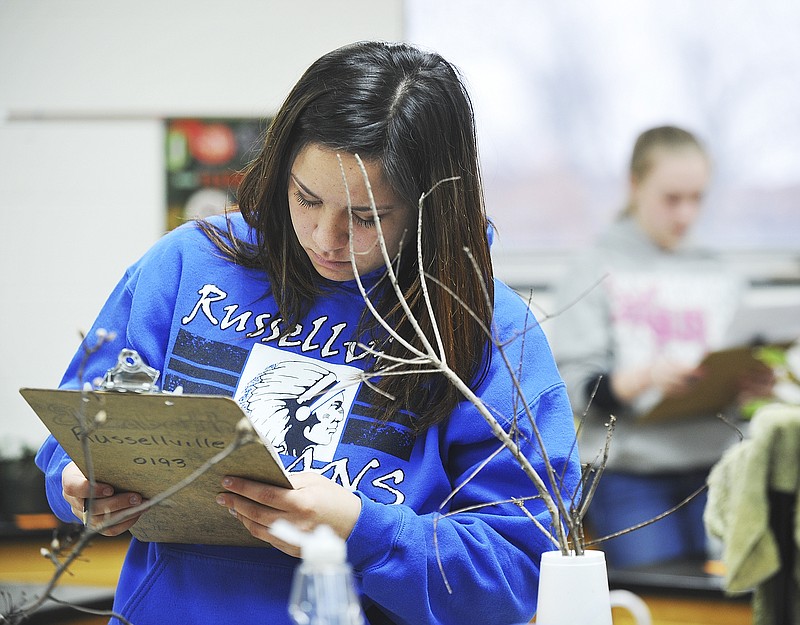Hunched over lab tables with clipboards in hand, students were keenly studying the contents of seed samples Tuesday at Lincoln University.
Down the hallway, others were viewing pinned insects for identification and in another room students were scrutinizing which plants and trees were laid out in the classroom.
The university hosted its 33rd annual Future Farmers of America Judging Contest, drawing nearly 1,300 high school students from more than 40 school districts. Lincoln faculty, staff, LU Ag Club members and agricultural advisers served as judges.
Students were tested at the campus, Busby and Carver Farms, and local private farms in the areas of agronomy, dairy cattle, dairy foods, entomology, floriculture, forestry, horse, livestock, nursery/landscape, poultry and soils.
At the Dickinson Research Center, agronomy team members looked at seeds, clumps of hay and green grasses to identify the species or a disease.
FFA members like Colin Walters and Jackson Trachsel from California High School have been practicing their identification skills for several weeks at their school. Practice contests, like this one at Lincoln, helps the students move from a casual learning environment to a more focused competition without the finality of the district contest March 31, hopefully to advance to the state competition.
"It's helpful to have these practice contests," Walters said. "It makes us smarter when it comes to seeds."
In Founders Hall, dairy team members tasted several milk samples to decipher what the cattle may have eaten to change the taste, such as getting into an onion patch. They also eyeballed the fat content of another set of milk bottles and did chemical testing to assess whether bacteria was in a third batch.
Preparing this contest takes a lot of effort on the part of the host school.
In the plant identification room, Martha O'Connor, plant pathologist with the Lincoln extension, collected turf, bloom and dormant samples from area nurseries and campuses.
"It's impressive if the kids get some of these," O'Connor said.
The number of practice contests have increased in the last decade, along with student interest in the FFA competitions, said Russellville High School FFA Chapter Adviser Jason Twenter.
Across the state as many as three contests may be hosted each week, mostly at high schools. Russellville hosted a Leadership Development practice contest Monday and California is hosting one today. The Leadership Development contests focus on skills like public speaking, parliamentary procedure and FFA knowledge.
The rise in popularity may be due to easier access to practice contests and electronic grading for immediate results.
Not all students are involved for the competition side, many like Cole Theissen from Jamestown High School, simply are interested in learning.
"I'm doing this more for my own knowledge," Theissen said.

